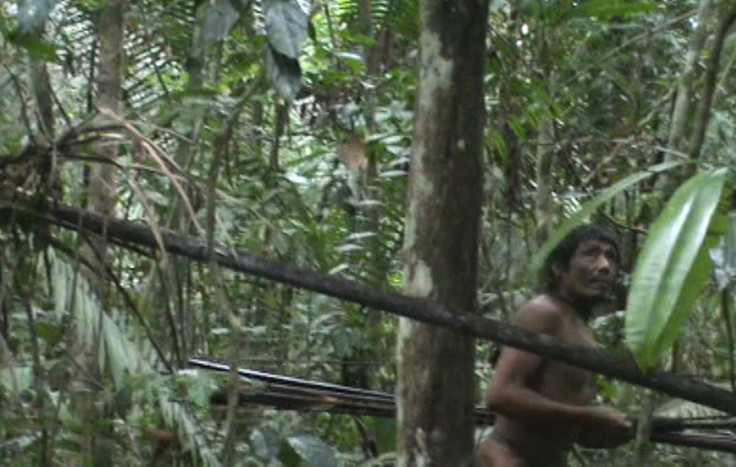Brazil seizes illegal loggers from uncontacted Kawahiva tribe's land in Amazon

A Brazilian government task force has arrested illegal loggers at an area in the Amazon rainforest that is close to the territory of an uncontacted tribe. The illegal loggers were held in Guariba Reserve, a buffer zone for the territory of Kawahiva tribe, tribal rights group Survival International said.
The Kawahiva tribe is a small group of indigenous people who have remained out of contact with the outside world. The government's Indian Affairs Agency, Funai, spotted them last in 2011 during a chance encounter. Officials said that adults and children of the tribe "appeared to be healthy".
The organisation has claimed that the tribe is on the run because of loggers, miners and cattle ranchers who often invade their land.
"Their [Kawahiva tribe] territory, known as Rio Pardo, is in Mato Grosso state, where illegal deforestation rates are the highest on record in Brazil's Amazon. Rio Pardo lies within the municipality of Colniza, one of the most violent areas in Brazil. 90% of Colniza's income is from illegal logging," the organisation said.
Survival of Brazil's many uncontacted tribes are threatened by deforestation and logging. In April last year, the government announced that "all" illegal invaders had been removed from the indigenous Awa tribe's land in the eastern Amazon rainforest.
However, such a ruling for the land of Kawahiva tribe, who fish, hunt and plant to survive, is pending since 2013, according to Survival, which urges that the tribe's land be designated indigenous territory.
"The Kawahiva face catastrophe unless their land is protected: If the forest disappears, so too will the Kawahiva. Brazil needs to do far more to prevent the extinction of yet another innocent tribe," director of the organisation, Stephen Corry said in a statement.
"They have shown their desire to remain uncontacted. Contact with the outside world could prove fatal for them, as it has been for their relatives and countless other peoples in the past. If their right to remain on their land undisturbed is respected, they will be able not only to survive, but to flourish."
© Copyright IBTimes 2025. All rights reserved.






















